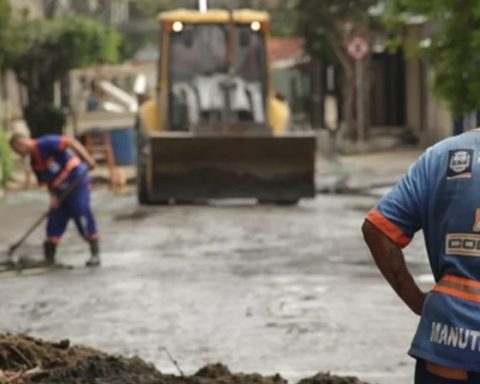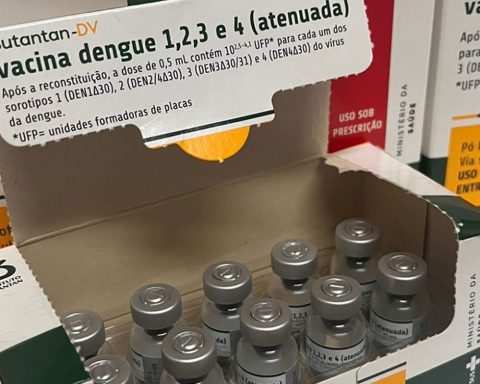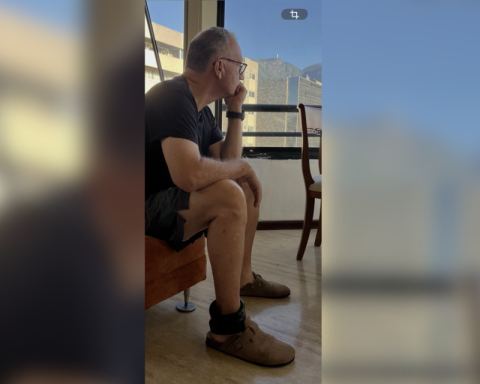A study by the British Council – the United Kingdom’s international organization for cultural relations and educational opportunities – shows that teacher training is one of the most serious obstacles to the use of technology in laboratories or in the classroom. Parallel to this issue, Brazilian schools face infrastructure problems.
The data are in the study The teaching of natural sciences and its technologies in Brazilian basic education – an overview between the years 2010 and 2020, made in partnership with the Carlos Chagas Foundation and launched this Wednesday (12). The bibliographical and documentary research aims to inventory and describe fundamental aspects for the development of STEM education (science, technology, engineering and mathematics).
According to the survey, the Innovation Center for Brazilian Education (Cieb) brings in its site a self-assessment carried out by more than 100,000 Brazilian basic education teachers, showing that they do not feel able to use technology for anything other than what they do in their personal lives.
“There is another training obstacle to be overcome as soon as possible: most teachers say they do not know how to use technology for their own professional development, that is, to take courses online or self-assessment online. It is a competency to be developed so that management actions yield more results”, says the survey.
Regarding infrastructure, two main types of shortcomings hinder schools: low connectivity, a sizeable challenge for a country with the territorial extension of Brazil, and the difficulty of accessing computers, tablets and other supports. “To give you an idea, the countries of the Organization for Economic Cooperation and Development (OECD) have an average of five students per computer, while in Brazil this number rises to 35 or more”, points out the document.
The research highlights that a “crucial issue for good science teaching is continuing education, which should complement and update concepts in an ever-changing world, with new discoveries”.
“The way of teaching science has changed rapidly, and the British Council seeks to share good practices in the United Kingdom in teaching STEM, encouraging exchanges and partnerships with Brazil”, said, in a note, the director of Cultural Engagement of the British Council Brazil , Diana Daste. “This research has the role of encouraging reflections and conversations that can contribute to professionals and researchers in the dialogue on public policies for teaching science and technology.”
technology and science
According to the survey, computing can strongly collaborate with learning in other areas, such as natural sciences. In addition, it is a strategic area for contemporary society and one of the most attractive in the job market.
However, the study shows that this reality has not yet been transposed, as it could, to the universe of education. The research indicates a slightly declining variation in the number of enrollments for computer science degrees between 2015 and 2019. According to data from the Census of Higher Education, the biggest drops occurred in state and private universities, with a decrease of 14.5% and 21, 9% respectively, while the federal ones grew by 104.8%.
According to the analysis, the explanation for this picture involves some variants, such as the low financial attractiveness for the teaching career. There is, however, the expectation that the implementation of the National Policy on Digital Education, approved in December 2022 and sanctioned in January 2023, will make the teaching career in the area of science and technology more attractive. Bill 4,513/2020 establishes actions to expand access to technology on five fronts: digital inclusion, digital education, training, digital specialization and digital research.
Another fact that draws attention is the increase in the presence of Distance Learning (EAD). Among the undergraduate degrees selected for the study, between 2010 and 2019, the biggest increases in distance learning were in the areas of mathematics (46.5%) and computing (46%).
The research authors raise the possibility that mobilization to open courses in the area of mathematics, in addition to being necessary due to the importance of the discipline and the demand for this professional, is simpler in terms of infrastructure for higher education institutions. “After all, this growth has not been accompanied by disciplines that, ideally, require the setting up of laboratories, such as physics, chemistry and biology, which require greater financial support for their offer”.
Modernization of teaching
The need to modernize science teaching in the country is a recurrent fact in the research. The points of attention raised include, for example, reduced access to laboratory materials and the challenges faced by teachers in the process of inserting and developing scientific literacy in the basic school routine.
Another scenario mentioned is the need for an environment conducive to expanding the science and technology curriculum with interdisciplinary subjects, involving topics such as gender and race.
Among the recommendations proposed by the study, the expansion of continuing education and the exchange of teaching experiences stand out as fundamental.















